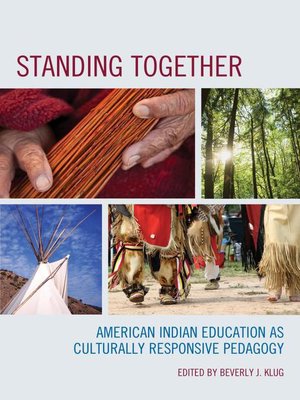Standing Together
ebook ∣ American Indian Education as Culturally Responsive Pedagogy
By Beverly J. Klug

Sign up to save your library
With an OverDrive account, you can save your favorite libraries for at-a-glance information about availability. Find out more about OverDrive accounts.
Find this title in Libby, the library reading app by OverDrive.



Search for a digital library with this title
Title found at these libraries:
| Library Name | Distance |
|---|---|
| Loading... |
The majority of American Indian students attend public schools in the United States. However, education mandated for American Indian students since the 1800s has been primarily education for assimilation, with the goal of eliminating American Indian cultures and languages. Indeed, extreme measures were taken to ensure Native students would "act white" as a result of their involvement with Western education. Today's educational mandates continue a hegemonic "one-size-fits-all" approach to education. This is in spite of evidence that these approaches have rarely worked for Native students and have been extremely detrimental to Native communities.
This book provides information about the importance of teaching American Indian students by bridging home and schools, using students' cultural capital as a springboard for academic success. Culturally Responsive Pedagogy is explored from its earliest beginnings following the 1928 Meriam Report. Successful education of Native students depends on all involved and respect for the voices of American Indians in calling for education that holds high expectations for native students and allows them to be grounded in their cultures and languages.
This book provides information about the importance of teaching American Indian students by bridging home and schools, using students' cultural capital as a springboard for academic success. Culturally Responsive Pedagogy is explored from its earliest beginnings following the 1928 Meriam Report. Successful education of Native students depends on all involved and respect for the voices of American Indians in calling for education that holds high expectations for native students and allows them to be grounded in their cultures and languages.







